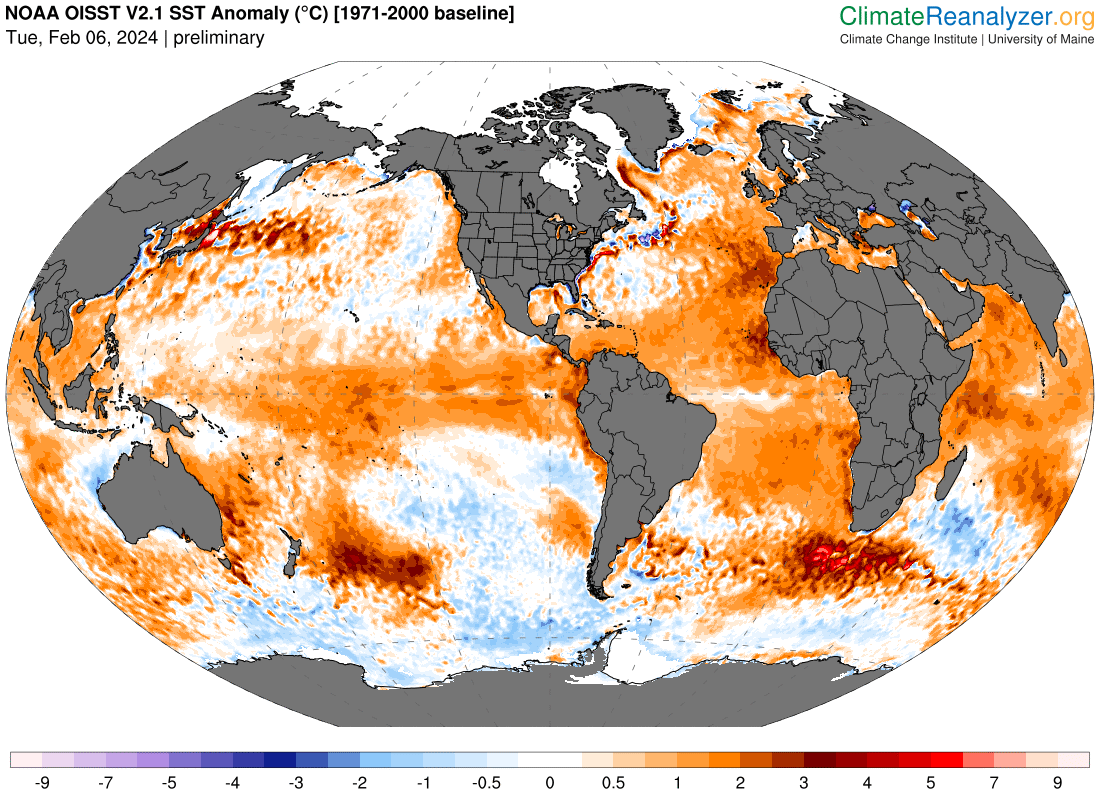Global sea surface temperature reaches new record
Earth’s global average sea surface temperature has reached the highest level on record this week, with more warming likely in the coming months.
According to the NOAA OISST v2.1 dataset, our planet’s global average sea surface temperature reached 21.13ºC on February 6. This was 0.83ºC warmer than the 1982 to 2011 average for this date, and the highest global ocean temperature on record for this dataset.

Image: Global sea surface temperature anomaly on February 6, 2024, according to the NOAA OISST v2.1 dataset. Source: ClimateReanalyzer.org
Prior to 2024, NOAA’s OISST v2.1 dataset had never had a day above 21.09ºC for global ocean temperatures. However, we have just seen seven consecutive days at or above 21.10ºC between January 31 and February 6, peaking at 21.13ºC on February 6.
The current run of record-breaking ocean heat is a result of several factors:
- El Niño is still active, which is associated with a large tongue of warmer than average water across the central and eastern tropical Pacific Ocean
- It is summer in the Southern Hemisphere, which means the vast oceans to the south of the equator are near their warmest time of year. Oceans cover around 80 percent in the Southern Hemisphere, far more than the Northern Hemisphere.
- Climate change, caused primarily by increasing concentrations of atmospheric greenhouse gases, is warming Earth’s oceans in the background.
The graph below shows how global sea surface temperatures at the start of 2024 have compared to all other years since 1981.
.png)
Image: Global sea surface temperatures between 1981 and 2024, according to the NOAA OISST v2.1 dataset. Source: ClimateReanalyzer.org
As you can see in the graph above, there is still about two months to go until we reach the seasonal peak in annual sea surface temperatures. This means we could still see more global sea surface temperature records over the next several weeks.